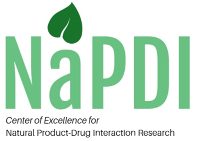According to the 2015 National Survey on Drug Use and Health, marijuana is the most commonly used illicit drug in the United States, with an estimated 22.2 million users. The primary cannabinoids contained in marijuana include the psychoactive constituent, (-)delta-9-tetrahydrocannabinol (THC), and the non-psychoactive constituent, cannabidiol (CBD). The average THC content in many modern marijuana strains is increasing in parallel with reduced CBD content. However, strains typically used for medicinal purposes tend to be enriched in CBD. Food products (edibles) containing THC at doses from 50 mg/pack to as high as 1,000 mg/pack have gained widespread popularity in states where medical or recreational marijuana is legal. Medical cannabinoid use continues to expand with the recent FDA approval of Epidiolex™ (cannabidiol oral solution) indicated for the use in seizures associated with Lennox-Gastaut syndrome or Dravet syndrome.
In vitro, THC and CBD are highly lipophilic molecules (logP >5) that exhibit significant binding to plasticware, glassware, and plasma and microsomal proteins, as well as poor aqueous solubility. Rich in vitro evidence indicates strong inhibitory effects of both cannabinoids toward several CYPs. However, these published studies do not account for the high degree of protein binding and poor aqueous solubility of the cannabinoids. These properties can lead to significant overestimation of inhibitory potency and subsequent underestimation of the true clinical drug interaction potential. These limitations highlight the need for biorelevant cannabinoid solubility studies and quantification of binding extent to plastic and microsomal proteins in order to optimally determine the in vitro cannabinoid-mediated inhibition of key CYPs.
Clinically, CBD-mediated metabolic inhibition of norclobazam (CYP2C19 and CYP3A) and hexobarbital (CYP2C9 and CYP2C19) appeared to be responsible for an observed increase in object drug plasma concentrations. Co-administration of oral THC as an anti-emetic agent to cancer patients had no effect on the pharmacokinetics of the anti-cancer agents cyclophosphamide, doxorubicin, irinotecan, and docetaxel administered as intravenous infusions. However, the oral THC doses administered in these studies were lower than those reported for marketed marijuana products with high THC content (see above). A detailed literature search on cannabinoid-mediated drug interactions revealed a dearth of comprehensive in vitro and clinical studies evaluating the drug interaction potential of cannabinoids, warranting further investigation.
